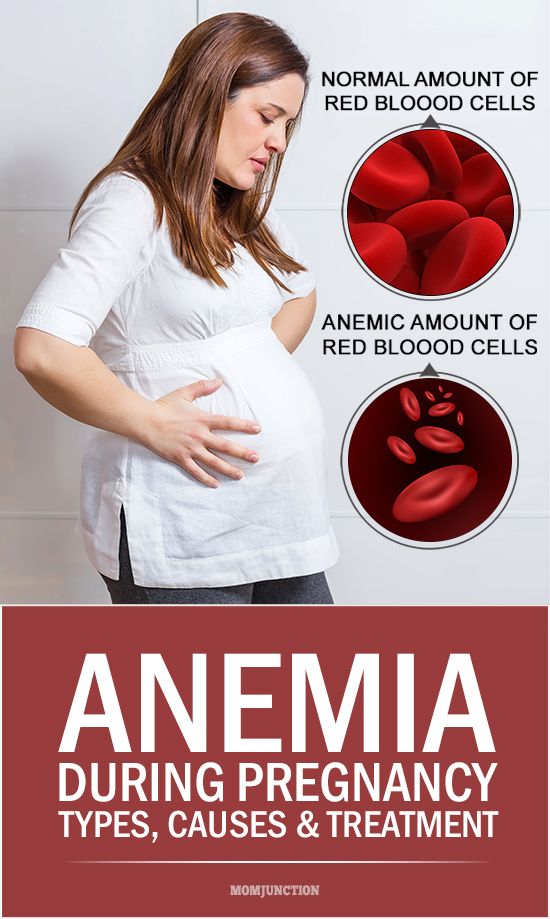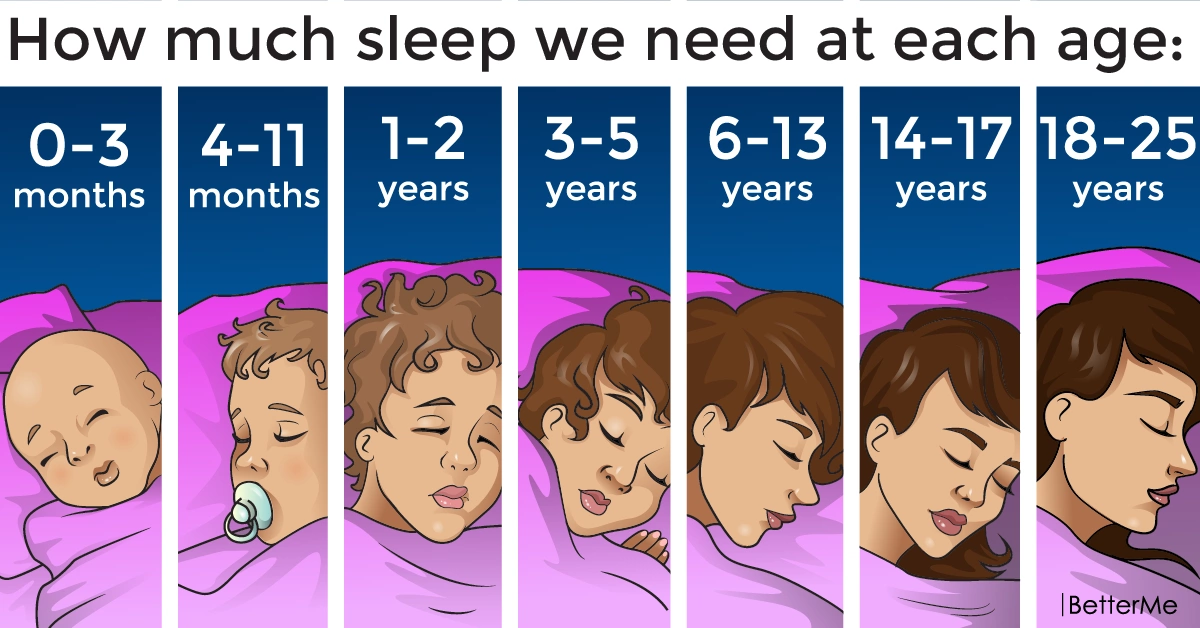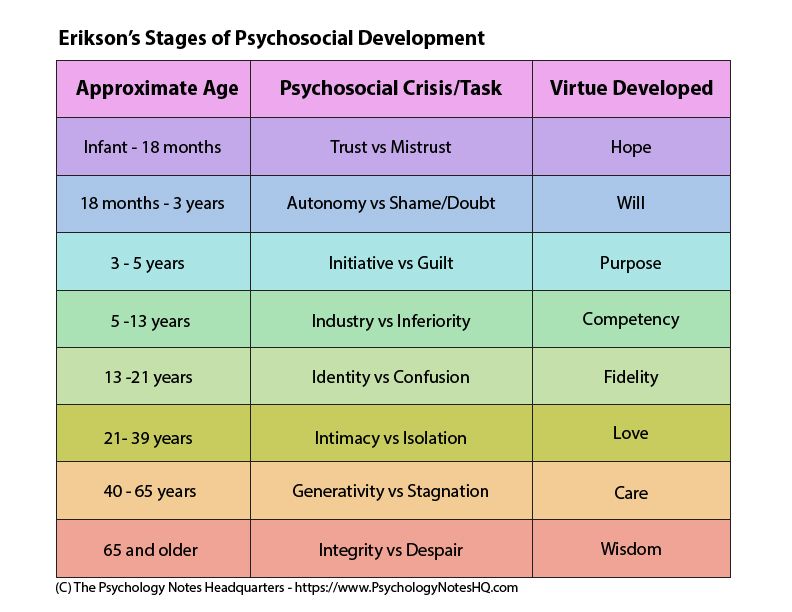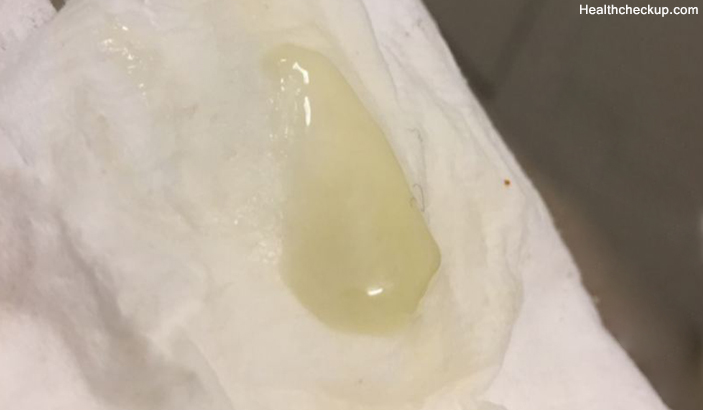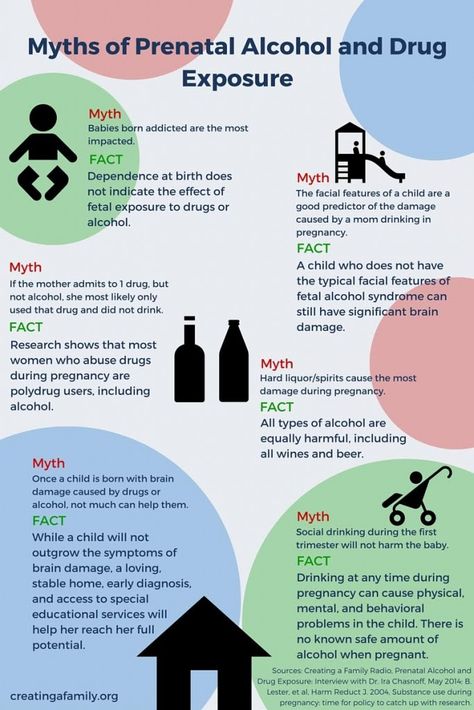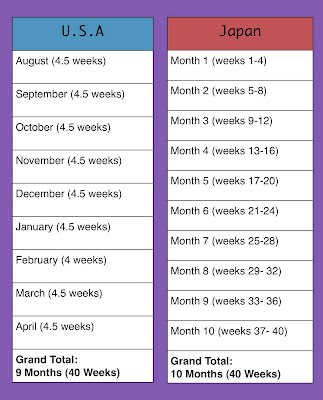Newborn baby testing
Newborn Screening Tests (for Parents)
What Is Newborn Screening?
Newborn screening is a public health service done in each U.S. state. Every newborn is tested for a group of health disorders that aren't otherwise found at birth.
With a simple blood test, doctors can check for rare genetic, hormone-related, and metabolic conditions that can cause serious health problems. Newborn screening lets doctors diagnose babies quickly and start treatment as soon as possible.
Which Screening Tests Are Offered?
Screening varies by state. Tests offered can change as technology advances and treatments improve. Although there are national recommendations for newborn screening, it is up to each state to decide which tests to include.
Newborn screening includes tests for:
Metabolic problems. Metabolism is the process that converts food into energy the body can use to move, think, and grow. Enzymes are special proteins that help with
metabolismby speeding up the chemical reactions in cells. Most metabolic problems happen when certain enzymes are missing or not working as they should. Metabolic disorders in newborn screening include:
- phenylketonuria (PKU)
- methylmalonic acidemia
- maple syrup urine disease (MSUD)
- tyrosinemia
- citrullinema
- medium chain acyl CoA dehydrogenase (MCAD) deficiency
Hormone problems. Hormones are chemical messengers made by glands. Hormone problems happen when glands make too much or not enough hormones. Hormone problems in newborn screening include:
- congenital hypothyroidism
- congenital adrenal hyperplasia
Hemoglobin problems: Hemoglobin is a protein in red blood cells that carries oxygen throughout the body. Some of the hemoglobin problems included in newborn screening are:
- sickle cell disease
- hemoglobin SC disease
- beta thalassemia
Other problems. Other rare but serious medical problems included in newborn screening are:
Other rare but serious medical problems included in newborn screening are:
- galactosemia
- biotidinase deficiency
- cystic fibrosis
- severe combined immunodeficiency (SCID)
- Pompe disease (glycogen storage disease type II)
- mucopolysaccharidosis type 1
- X-linked adrenoleukodystropy
- spinal muscle atrophy (SMA)
Most states also screen for hearing loss and critical congenital heart disease, which are not done by testing the blood.
Talk to your doctor if you think your baby may need other newborn screening tests not offered through your state program.
How Is Newborn Screening Done?
A small blood sample taken by pricking the baby's heel is tested. This happens before the baby leaves the hospital, usually at 1 or 2 days of age. Talk to your doctor about newborn screening if your baby was not born in a hospital.
The blood sample should be taken after the first 24 hours of life. Some babies are tested within the first 24 hours, though, because sometimes moms and newborns are discharged within 1 day. If this happens, experts recommend taking a repeat sample after the baby is more than 24 hours old. Some states routinely do two tests on all infants.
Some babies are tested within the first 24 hours, though, because sometimes moms and newborns are discharged within 1 day. If this happens, experts recommend taking a repeat sample after the baby is more than 24 hours old. Some states routinely do two tests on all infants.
When Are the Results Ready?
Results of newborn screening for hearing loss and heart disease are available as soon as the test is done.
Blood test results usually are ready by the time a baby is 5–7 days old. Often, parents won't hear about results if screening tests were normal. They are contacted if a test was positive for a condition. A positive newborn screening test does not mean a child definitely has the medical condition. Doctors order more tests to confirm or rule out the diagnosis. Parents can talk to their child's doctor about the newborn screening results.
If a diagnosis is confirmed, doctors might refer the child to a specialist for more testing and treatment. When treatment is needed, it's important to start it as soon as possible. Treatment may include special formula, diet restrictions, supplements, medicines, and close monitoring.
Treatment may include special formula, diet restrictions, supplements, medicines, and close monitoring.
Visit Baby's First Test for more information on newborn screening and to find out which conditions your state checks for.
Phenylketonuria (PKU) (for Parents) - Nemours KidsHealth
What Is Phenylketonuria (PKU)?
Phenylketonuria (fen-ul-kee-tuh-NUR-ee-uh), or PKU, is a metabolic disorder that some babies are born with. It's caused by a defect in the enzyme that breaks down the amino acid phenylalanine.
Newborn babies in the United States have their blood tested for PKU as part of newborn screening. This lets doctors start treatment, usually a special diet, right away to help prevent problems.
What Are the Signs & Symptoms of PKU?
The body uses amino acids to build proteins. Phenylalanine (fen-ul-AL-uh-neen) is needed for normal growth in infants and children and for normal protein production. But if too much builds up in the body, the brain is affected. Phenylketonuria that's not treated can lead to developmental delays and permanent intellectual disability.
Phenylketonuria that's not treated can lead to developmental delays and permanent intellectual disability.
Phenylalanine also affects melanin, the pigment responsible for hair color and skin color. So kids with PKU often have fair skin, light hair, and blue eyes.
A child with PKU may also have:
- seizures
- growth problems
- behavioral problems
- skin rashes
- a musty odor to the breath, skin, or urine (pee) from too much phenylalanine in the body
What Causes PKU?
Phenylalanine is one of the eight amino acids that we get only from food sources. Usually, the body breaks down phenylalanine with an enzyme called phenylalanine hydroxylase (PAH) to make proteins.
People with PKU are born with an inherited defect in the gene that controls the production of PAH. So their bodies can't break down phenylalanine properly.
How Is PKU Diagnosed?
All newborn babies in the United States have their blood tested for signs of PKU as part of newborn screening.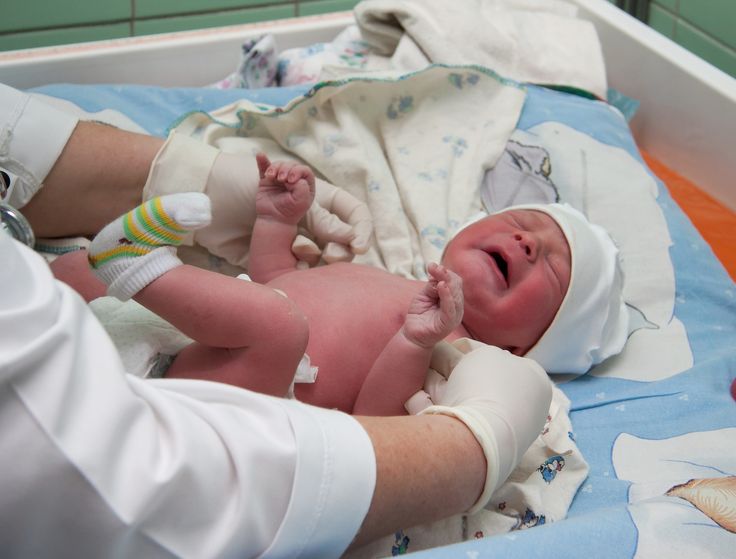
How Is Phenylketonuria Treated?
Treatment for PKU involves following a strict diet that is low in phenylalanine. Babies with PKU need to be on a special formula as soon as possible.
Children and adults with PKU should eat a low-protein diet. They should avoid high-protein foods, like milk, dairy, meats, eggs, nuts, soy, and beans. A person with PKU also should avoid the artificial sweetener aspartame, which contains phenylalanine. Special formulas may be needed at any age for the person to get the right amount of calories and essential nutrients.
The special diet should start as soon as PKU is diagnosed and continue for the rest of the person's life. New medicines are being developed to lower PKU in the blood, but medical nutrition therapy is the main treatment for PKU.
What Else Should I Know?
PKU is treatable when found early. Doctors will closely watch kids who have it. People with PKU must strictly follow the right diet for the rest of their lives. This can prevent the problems caused by too much phenylalanine.
This can prevent the problems caused by too much phenylalanine.
If your child has phenylketonuria, work with the health care team to help keep phenylalanine levels in an acceptable range. Your doctor will check the level of phenylalanine in your child's blood regularly.
Because PKU is a genetic condition, you may want to speak to a genetic counselor about testing other family members and how PKU runs in families. You also can find more information and support online at:
- National PKU Alliance
- The National Society for Phenylketonuria
Examination of newborns for hereditary diseases - Krasnoyarsk Regional Medical Genetic Center
regional state
budgetary healthcare institution Krasnoyarsk Regional Medical Genetic Center
Registration (391) 255-74-80
(391) 254-03-25
Download Newborn Screening. Skilance is carried out to identify some hereditary diseases that are not manifested at birth, but subsequently lead to severe developmental disorders, mental retardation and even death. Detection of these diseases in the preclinical stage and early treatment prevent the development of the disease and make it possible to make the life of such children full.
Skilance is carried out to identify some hereditary diseases that are not manifested at birth, but subsequently lead to severe developmental disorders, mental retardation and even death. Detection of these diseases in the preclinical stage and early treatment prevent the development of the disease and make it possible to make the life of such children full.
The screening procedure is very simple. A newborn before discharge from the maternity hospital (full-term babies on the 4th day of life, premature on the 7th day) takes a few drops of blood from the heel onto a special filter paper. The blood-stained paper is dried and sent to the laboratory of the medical genetics center, where various laboratory tests are used to analyze it. The same blood samples can be used to diagnose different hereditary diseases.
The test results are sent to the geneticist of the medical genetic center. If the test results are "normal", this means that the child does not have any of the hereditary diseases being tested. If some laboratory parameters do not correspond to the norm, then the geneticist will report this information to the children's clinic at the child's place of residence in order to conduct a second blood sampling (retesting). In this case, two situations can occur: either the first test was the so-called “false positive”, and then during retesting, the indicators will be normal, and the child, therefore, is healthy; or as a result of a repeated study, the diagnosis of a hereditary disease will be confirmed. Typically, such laboratory testing takes 2-3 weeks. Retesting is absolutely essential, and the sooner the better, so as not to live in fear for your child's future.
If some laboratory parameters do not correspond to the norm, then the geneticist will report this information to the children's clinic at the child's place of residence in order to conduct a second blood sampling (retesting). In this case, two situations can occur: either the first test was the so-called “false positive”, and then during retesting, the indicators will be normal, and the child, therefore, is healthy; or as a result of a repeated study, the diagnosis of a hereditary disease will be confirmed. Typically, such laboratory testing takes 2-3 weeks. Retesting is absolutely essential, and the sooner the better, so as not to live in fear for your child's future.
If a child has one of the tested diseases that has not yet manifested clinically, the doctor promptly prescribes the appropriate treatment. Early and carefully conducted treatment will prevent the development of signs of the disease and will enable the child, and then the adult, to be healthy.
Previously screened for 5 hereditary/congenital diseases.
From January 1, 2023, neonatal screening in the Russian Federation will be expanded to 36 diseases.
Hereditary metabolic diseases (NBO) - a group of genetic diseases in which disturbances in biochemical processes occur and various systems and organs are affected. Most NBOs treat with dietary therapy, which should be started as early as possible to keep the child healthy.
Congenital hypothyroidism is a hereditary pathology of the thyroid gland, which can lead to a lag in physical development and severe mental disability. Today, timely diagnosed hypothyroidism responds well to hormonal therapy.
Adrenogenital syndrome - a group of disorders associated with excessive secretion of adrenal hormones. The disease has various forms, in especially severe cases it is manifested by a violation of water-salt metabolism and multiple organ failure. Treatment of the classic forms of this syndrome involves the use of hormone replacement therapy.
Cystic fibrosis is one of the most common hereditary diseases. It is manifested by damage to the lungs, liver, gastrointestinal tract and other body systems. It is necessary to start treatment as early as possible in order to maximize the quality and duration of life.
Spinal muscular atrophy is a severe hereditary neuromuscular disease. The disease can begin from the first days / months of life, manifest itself as gradually increasing muscle weakness and lead to severe motor impairment. Currently, there is a therapy that, together with specialized rehabilitation, can significantly reduce the manifestations of this disease.
Primary immunodeficiencies (PID) are hereditary or acquired diseases of the immune system. Children with PID are at high risk of developing severe infections from the first days of life. If the disease is detected in time, the success of the treatment increases, allowing the normal function of the immune system to be restored.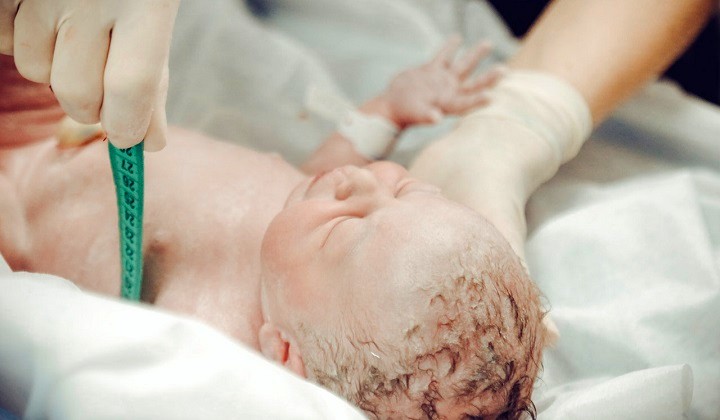
Dear mothers and fathers, make sure that a few drops of blood from the heel are taken from your child to be tested for the listed diseases.
Please provide the exact address where the baby will be after discharge from the maternity hospital so that you can be easily contacted.
Neonatal screening | BPH 91
Neonatal screening
Immediately after birth, the child may not have clinical symptoms of a genetic disease. However, with age, clinical symptoms can increase, leading to a critical situation, serious illness and even death.
Neonatal screening is carried out for early detection, timely treatment, prevention of disability and the development of severe clinical consequences, as well as reducing child mortality from hereditary diseases.
Neonatal screening is a mass examination of newborns for hereditary diseases (adrenogenital syndrome, galactosemia, congenital hypothyroidism, cystic fibrosis, phenylketonuria).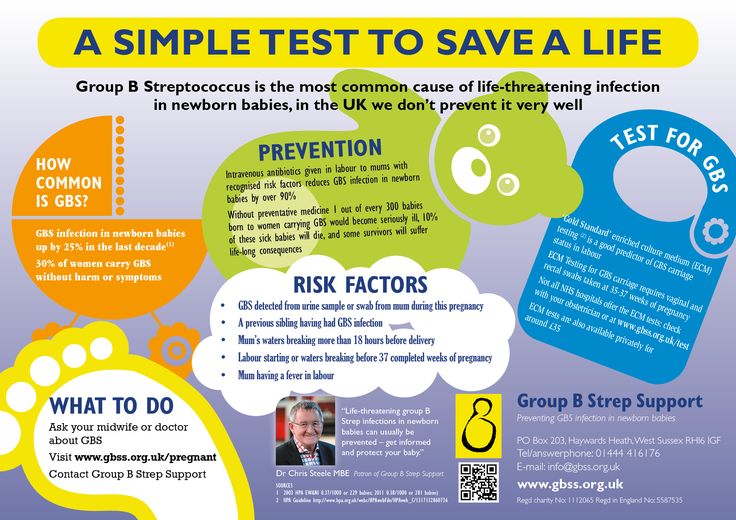
When is newborn screening done?
Neonatal screening is carried out on:
- 4 days of life in a full-term baby;
- 7 days of life in a premature baby.
Where is newborn screening done?
Blood sampling is carried out in the maternity hospital. At the same time, in the extract, the neonatologist puts a mark “Neonatal screening taken”.
If for some reason the screening was not carried out, then it is carried out in the polyclinic at the place of residence.
How are newborns screened?
A blood sample is taken from the heel of a newborn baby 3 hours after feeding.
Blood sampling is carried out on special filter paper test forms from the heel of the newborn.
Before taking a blood sample, the heel of a newborn baby should be washed, wiped with a sterile wipe moistened with 70% alcohol, then dipped with a dry sterile wipe.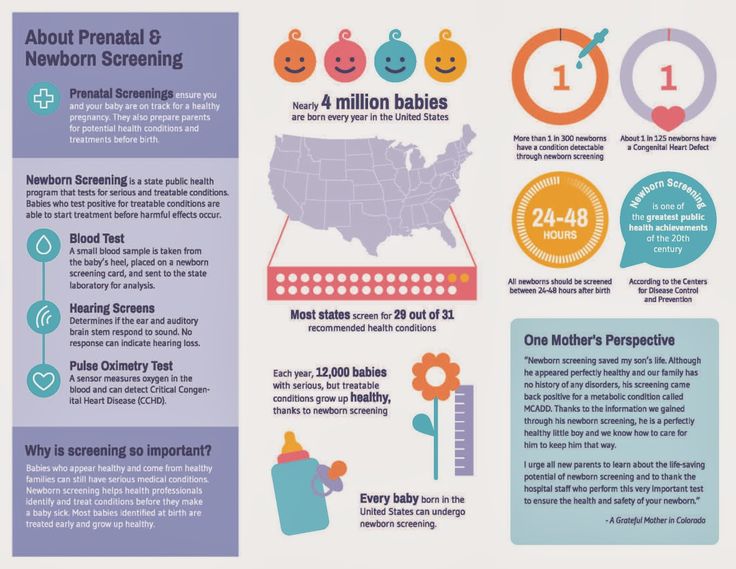 The heel puncture of a newborn child is carried out with a disposable scarifier, the first drop of blood is removed with a sterile dry swab.
The heel puncture of a newborn child is carried out with a disposable scarifier, the first drop of blood is removed with a sterile dry swab.
To accumulate a second drop of blood, apply gentle pressure on the heel of a newborn baby. The test form is applied perpendicularly and soaked with blood completely and through and through in accordance with the circle dimensions indicated on the test form. The appearance of blood spots should be the same on both sides of the test form.
The study of blood samples is carried out in the Medical Genetic Department (Moscow Center for Neonatal Screening).
Since 2006 in Russia by order of the Russian Ministry of Health and Social Development dated 22.03.2006 No. 185 "On mass examination of newborns for hereditary diseases" neonatal screening for five hereditary diseases is carried out:
Congenital hypothyroidism.
1. Phenylketonuria.
2. Cystic fibrosis.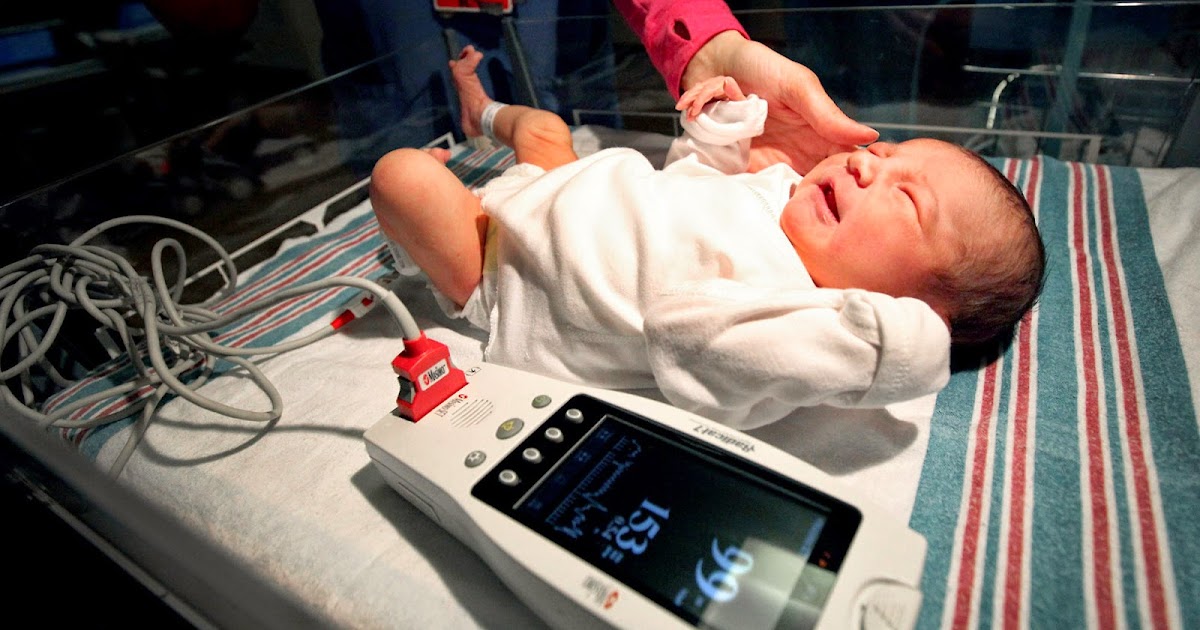
3. Galactosemia.
4. Andrenogenital syndrome.
5. Congenital hypothyroidism.
Congenital hypothyroidism is a disease in which thyroid insufficiency is manifested, so the physical and mental condition of the child does not develop. Timely hormonal treatment will prevent the disease and lead to the full development and recovery of the baby. The dose of the hormone is selected individually.
Phenylketonuria is a rare hereditary disease of the group of fermentopathies associated with impaired metabolism of amino acids, mainly phenylalanine. The disease is associated with serious mental and neurological disorders. If a disease is detected, the doctor prescribes a long-term diet for the recovery and normal development of the young organism. The diet is selected individually.
Cystic fibrosis ( another name - cystic fibrosis ) is a common genetic disease that is inherited only. Its specific feature is the formation of viscous mucus throughout the body, as a result of which, first of all, the functioning of organs covered with a mucous membrane is disrupted: the digestive system, lungs and other vital organs. Most often, the disease manifests itself in infancy and requires well-coordinated interaction between the family and medical specialists in order to provide the child with timely, and therefore effective treatment.
Galactosemia is a cause that occurs when feeding with milk or dairy products, while internal organs (nervous system, liver) are affected. Following the doctor's instructions, treatment and a dairy-free diet will help to avoid consequences.
Adrenogenital syndrome - increased production of androgen hormones by the adrenal glands. If left untreated, then the reproductive system develops rapidly in children, and the overall growth stops, in the future - the person is infertile.
